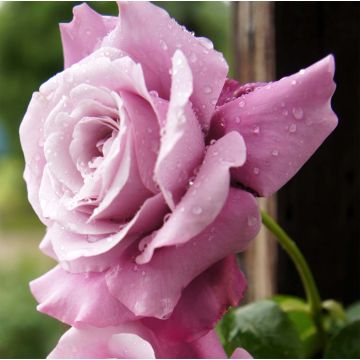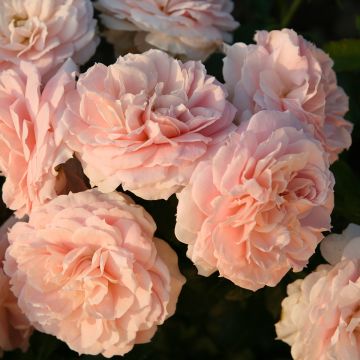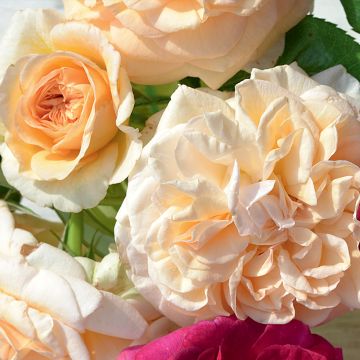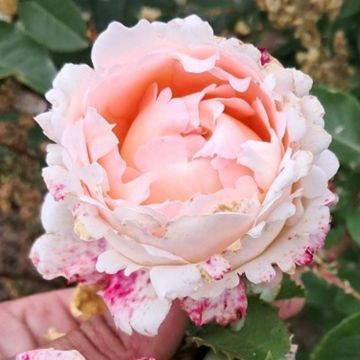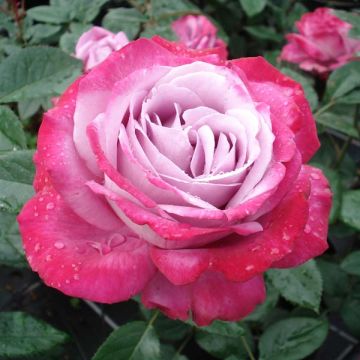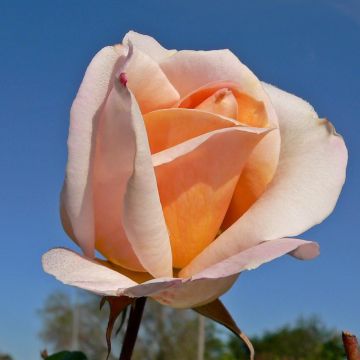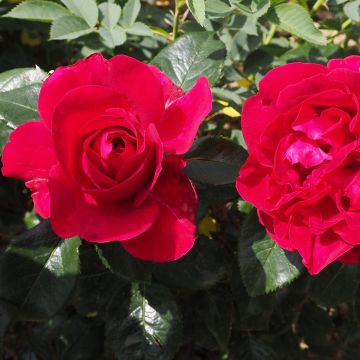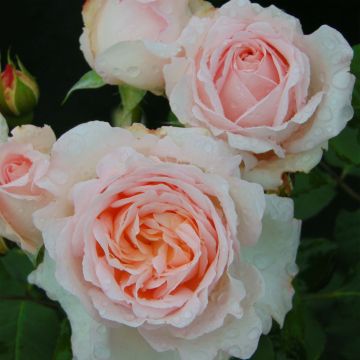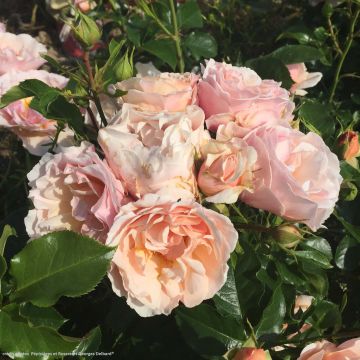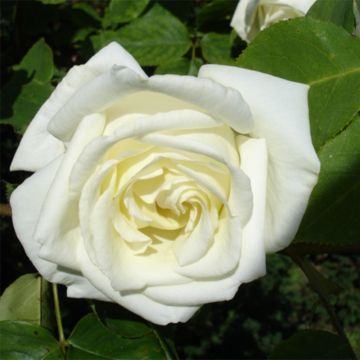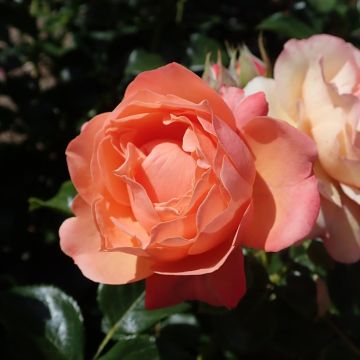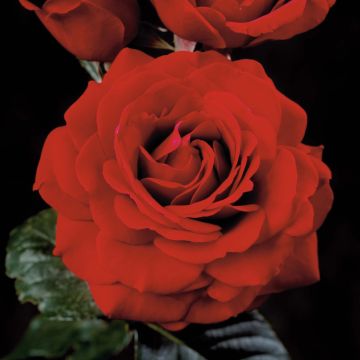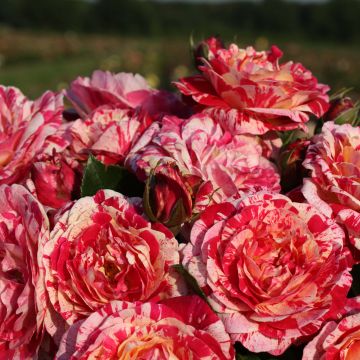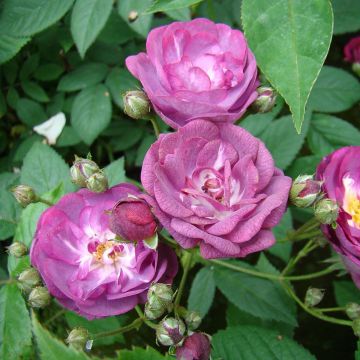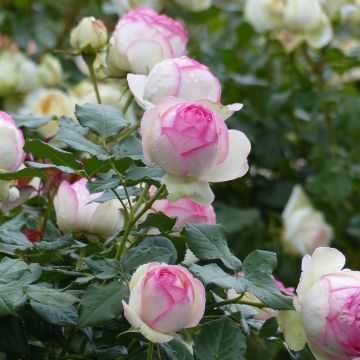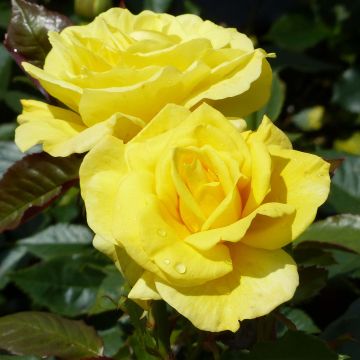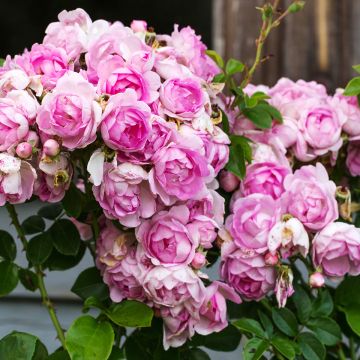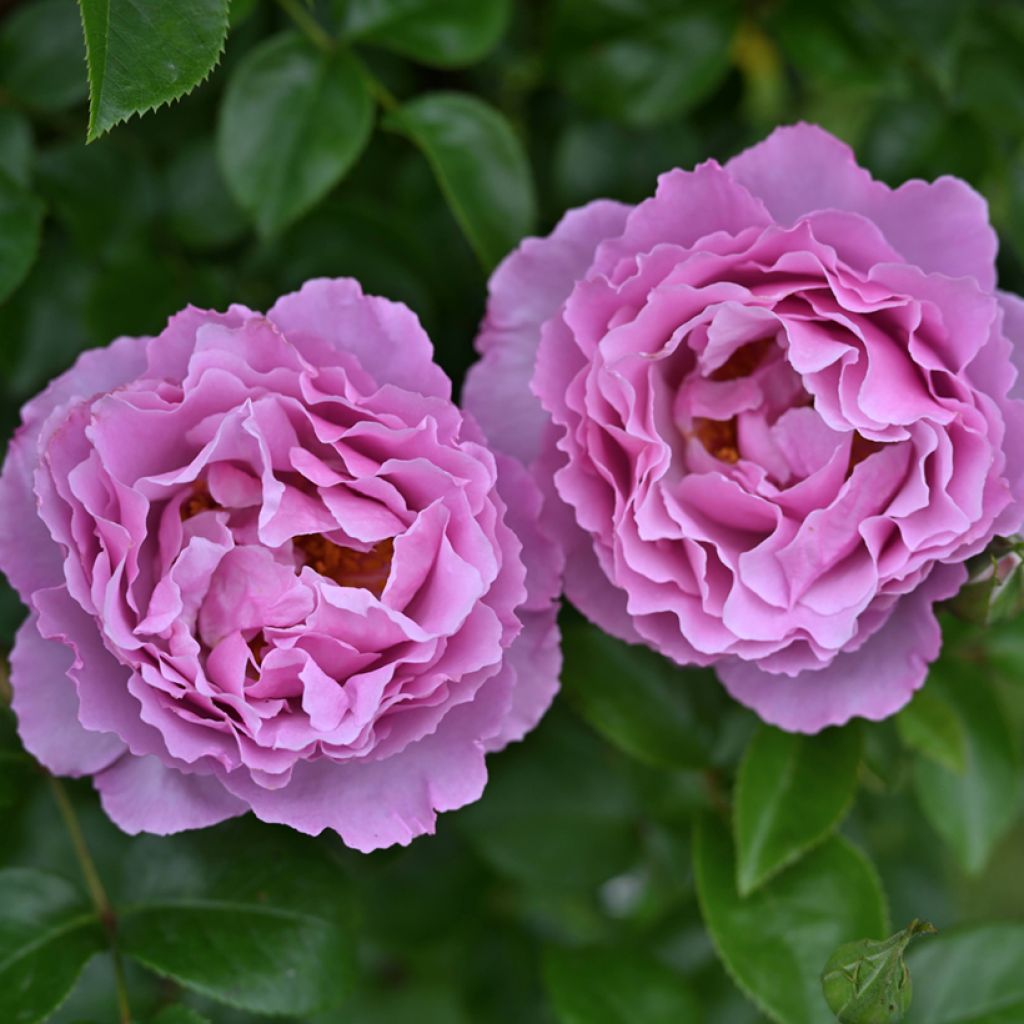

Rosa floribunda Alexandra David Neel - Floribunda Rose
Rosa floribunda Alexandra David Neel - Floribunda Rose
Rosa Alexandra David Neel® Deldentros
Floribunda Rose
This item cannot be shipped to the selected country
Delivery charge from €5.90
Delivery charge from €5.90
Delivery to Corse prohibited
More information
Schedule delivery date,
and select date in basket
This plant carries a 24 months recovery warranty
More information
We guarantee the quality of our plants for a full growing cycle, and will replace at our expense any plant that fails to recover under normal climatic and planting conditions.
From €5.90 for pickup delivery and €6.90 for home delivery
Express home delivery from €8.90.
From €5.90 for pickup delivery and €6.90 for home delivery
Express home delivery from €8.90.
Delivery to Corse prohibited: UE law prohibits the import of this plant from mainland France to Corse as part of the fight against Xylella fastidiosa. Please accept our sincere apologies.
More information
Does this plant fit my garden?
Set up your Plantfit profile →
Description
Rosa Alexandra David Neel® Deldentros, from the "The Great Perfumes" collection by Georges Delbard, pays tribute to the famous explorer of the same name who was also a passionate rose lover. This variety is distinguished by its large double and toothed, pink-purple, highly fragrant flowers from May until the first frost. Disease-resistant and very hardy, it has won several prestigious awards, notably in Rœulx, Belgium, and Baden-Baden, Germany.
Created in 2020 by Georges Delbard, Rosa Alexandra David Neel® Deldentros belongs to the group of cluster-flowered bush roses or floribundas, with flowers grouped in clusters. This vigorous and upright shrub measures between 60 and 80 cm in height, with an elegant habit and beautiful shiny dark green foliage. Its 9 cm diameter flowers have over 60 toothed petals, in a lovely pink-purple to mauve-pink hue. The flowering is perpetual, starting in May-June and lasting until the first frost. The deciduous foliage is absent in winter.
The powerful fragrance of the flowers, with intense floral notes, will delight enthusiasts of scented roses. Added to all these qualities are excellent disease resistance and great hardiness, down to -20°C. Exceptional qualities that have been recognised in several international competitions: it notably received a Certificate of Merit in Rœulx in 2020, as well as a medal in Baden-Baden in 2021 and in the Grand Duchy of Luxembourg.
Rosa Alexandra David Neel® shines in sunny beds, bringing a fantastic charm. To create a harmonious atmosphere, it is best to associate it with soft tones, such as pink, mauve, blue, and white, to enhance its delicacy. Choose for example ‘Japanese Anemone 'Honorine Jobert', with delicate white flowers, Nepeta 'Walker's Low', covered in lavender-blue spikes, Astrantia major 'Roma', with pale pink flowers, and Echinacea 'Mini Belle' for its bright pink pompom flowers. All these perennials will enhance the subtle nuances of the rose while adding volume and texture to the whole.
Report an error about the product description
Plant habit
Flowering
Foliage
Botanical data
Rosa
Alexandra David Neel® Deldentros
Rosaceae
Floribunda Rose
Cultivar or hybrid
Other Large-flower tea Roses
Planting and care
Plant your Rose Bush Alexandra David Neel in a sunny location or in light shade. Modern bushes are fairly tolerant, but do not appreciate excess chalk. They will adapt to any garden as long as the soil is well worked, not too heavy, and rich. To plant your rose bush, work the soil well by crumbling it and placing a base fertiliser at the bottom of the planting hole, such as dried blood or dehydrated horn. Water generously after planting to remove air pockets. Water regularly for a few weeks to facilitate rooting. Avoid pruning too short during the first two years.
Pruning modern perpetual roses is essential for flowering. It is done in three stages:
1. Maintenance pruning: regularly shorten the flowering shoots during the season. To promote the reblooming of perpetual roses, remove faded flowers along with their stem with 2 or 3 leaves.
2. Autumn preparatory pruning : This light pruning anticipates the true spring pruning.
In regions with cold winters, it is not recommended as it may weaken the bush.
3. Spring pruning : in February-March, when the buds have become shoots 2 to 3 cm long: prune the young strong branches to one quarter of their length.
Pruning always aims to clear the heart of the bush and remove dead wood, diseased branches, and weak shoots. The most vigorous ones will be kept, usually 3 to 6 well-positioned branches to maintain a beautiful habit. Always prune at an angle ½ cm or 1 cm above an outward facing bud.
Planting period
Intended location
Care
This item has not been reviewed yet - be the first to leave a review about it.
Roses by purpose
Haven't found what you were looking for?
Hardiness is the lowest winter temperature a plant can endure without suffering serious damage or even dying. However, hardiness is affected by location (a sheltered area, such as a patio), protection (winter cover) and soil type (hardiness is improved by well-drained soil).

Photo Sharing Terms & Conditions
In order to encourage gardeners to interact and share their experiences, Promesse de fleurs offers various media enabling content to be uploaded onto its Site - in particular via the ‘Photo sharing’ module.
The User agrees to refrain from:
- Posting any content that is illegal, prejudicial, insulting, racist, inciteful to hatred, revisionist, contrary to public decency, that infringes on privacy or on the privacy rights of third parties, in particular the publicity rights of persons and goods, intellectual property rights, or the right to privacy.
- Submitting content on behalf of a third party;
- Impersonate the identity of a third party and/or publish any personal information about a third party;
In general, the User undertakes to refrain from any unethical behaviour.
All Content (in particular text, comments, files, images, photos, videos, creative works, etc.), which may be subject to property or intellectual property rights, image or other private rights, shall remain the property of the User, subject to the limited rights granted by the terms of the licence granted by Promesse de fleurs as stated below. Users are at liberty to publish or not to publish such Content on the Site, notably via the ‘Photo Sharing’ facility, and accept that this Content shall be made public and freely accessible, notably on the Internet.
Users further acknowledge, undertake to have ,and guarantee that they hold all necessary rights and permissions to publish such material on the Site, in particular with regard to the legislation in force pertaining to any privacy, property, intellectual property, image, or contractual rights, or rights of any other nature. By publishing such Content on the Site, Users acknowledge accepting full liability as publishers of the Content within the meaning of the law, and grant Promesse de fleurs, free of charge, an inclusive, worldwide licence for the said Content for the entire duration of its publication, including all reproduction, representation, up/downloading, displaying, performing, transmission, and storage rights.
Users also grant permission for their name to be linked to the Content and accept that this link may not always be made available.
By engaging in posting material, Users consent to their Content becoming automatically accessible on the Internet, in particular on other sites and/or blogs and/or web pages of the Promesse de fleurs site, including in particular social pages and the Promesse de fleurs catalogue.
Users may secure the removal of entrusted content free of charge by issuing a simple request via our contact form.
The flowering period indicated on our website applies to countries and regions located in USDA zone 8 (France, the United Kingdom, Ireland, the Netherlands, etc.)
It will vary according to where you live:
- In zones 9 to 10 (Italy, Spain, Greece, etc.), flowering will occur about 2 to 4 weeks earlier.
- In zones 6 to 7 (Germany, Poland, Slovenia, and lower mountainous regions), flowering will be delayed by 2 to 3 weeks.
- In zone 5 (Central Europe, Scandinavia), blooming will be delayed by 3 to 5 weeks.
In temperate climates, pruning of spring-flowering shrubs (forsythia, spireas, etc.) should be done just after flowering.
Pruning of summer-flowering shrubs (Indian Lilac, Perovskia, etc.) can be done in winter or spring.
In cold regions as well as with frost-sensitive plants, avoid pruning too early when severe frosts may still occur.
The planting period indicated on our website applies to countries and regions located in USDA zone 8 (France, United Kingdom, Ireland, Netherlands).
It will vary according to where you live:
- In Mediterranean zones (Marseille, Madrid, Milan, etc.), autumn and winter are the best planting periods.
- In continental zones (Strasbourg, Munich, Vienna, etc.), delay planting by 2 to 3 weeks in spring and bring it forward by 2 to 4 weeks in autumn.
- In mountainous regions (the Alps, Pyrenees, Carpathians, etc.), it is best to plant in late spring (May-June) or late summer (August-September).
The harvesting period indicated on our website applies to countries and regions in USDA zone 8 (France, England, Ireland, the Netherlands).
In colder areas (Scandinavia, Poland, Austria...) fruit and vegetable harvests are likely to be delayed by 3-4 weeks.
In warmer areas (Italy, Spain, Greece, etc.), harvesting will probably take place earlier, depending on weather conditions.
The sowing periods indicated on our website apply to countries and regions within USDA Zone 8 (France, UK, Ireland, Netherlands).
In colder areas (Scandinavia, Poland, Austria...), delay any outdoor sowing by 3-4 weeks, or sow under glass.
In warmer climes (Italy, Spain, Greece, etc.), bring outdoor sowing forward by a few weeks.

































